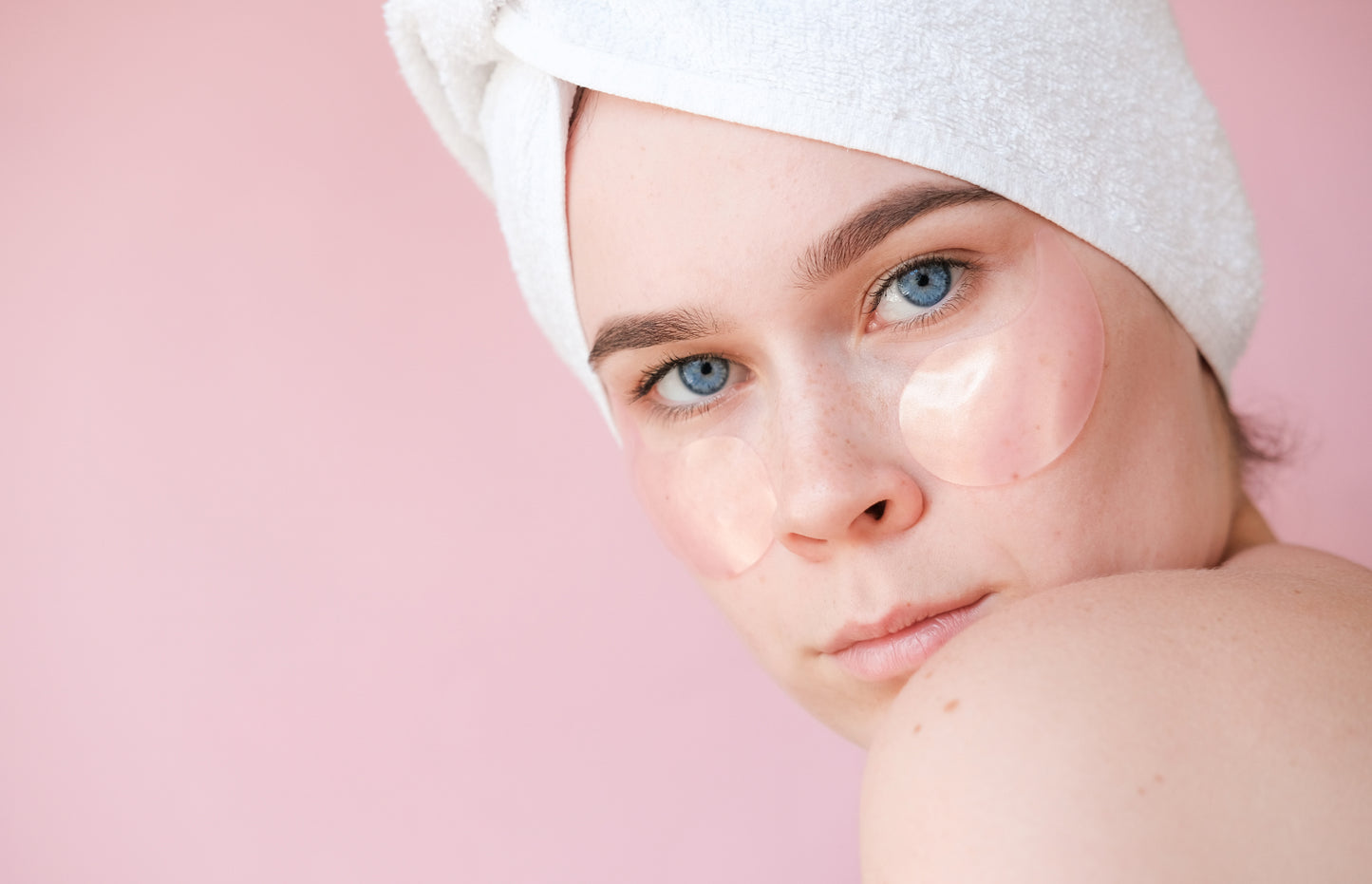
5 Ways To Restore & Support Collagen in Your Face
If you're worried about skin aging, you're not alone. With age, the skin gradually loses collagen, a key protein that gives skin its strength, elasticity, and youthful appearance. Collagen loss can lead to wrinkles, fine lines, and sagging skin.
While many dermatology treatments, such as chemical peels and micro-needling, can help restore collagen, these options are not for everyone. In this article, we'll focus on natural ways to support collagen production in your skin to encourage skin health and achieve a youthful glow.
What Is Collagen?
Collagen is a superstar structural protein that our body relies on to keep our skin, bones, muscles, tendons, and connective tissue in tip-top shape. It's made up of amino acids, which are the building blocks of protein, and it's synthesized by cells called fibroblasts, which maintain and contribute to connective tissue and the production of collagen fibers.
In the human body, collagen is vital in maintaining structure and elasticity, keeping the skin looking firm and smooth. Unfortunately, our body's collagen productiondecreases as we age.
Less collagen leads to pesky wrinkles and elasticity loss, which we all want to avoid. But don't worry! We can help maintain healthy, youthful-looking skin by supporting our natural collagen production.
How Does Collagen Work in the Skin?
Collagen synthesis is a complex process that requires the presence of specific vitamins and minerals, as well as healthy blood vessels, to deliver these nutrients to the skin. It also plays a crucial role in forming new blood vessels, known as angiogenesis.
When collagen levels in the skin decrease, blood vessels can become weaker and more prone to damage, leading to skin problems, including dark circles under the eyes, spider veins, and a dull, lackluster complexion. The skin then loses its ability to bounce back, and we start seeing signs of aging.
Collagen has a range of benefits, specifically for the skin. When collagen is plentiful in the skin, it forms a strong and resilient network that can withstand the stresses of everyday life. It helps keep our skin hydrated and plump, which is why it's important for maintaining a youthful appearance.
How Can You Support Collagen in Your Face?
You can support your skin elasticity by using collagen skincare products, eating a healthy diet rich in vitamins and minerals, and taking collagen supplements.
Use Collagen Skincare Products
Many topicalcreams and serums contain ingredients like retinol, hyaluronic acid, and elastin that can help rebuild collagen fibers and support skin elasticity. Adding them to your skincare routine can help support your skin cells and encourage the resurfacing of your skin.
Visiting the dermatology office and using retinoids can be expensive and time-consuming, but using collagen skincare products can be a simple and effective way to support collagen production without breaking the bank. Some collagen skincare products also contain natural ingredients like aloe and vitamin A, which can support your skin's moisture and deliver nutrients.
While using collagen skincare products may help improve the skin’s appearance by moisturizing, smoothing texture, and minimizing the appearance of fine lines, consuming collagen through your diet can have more profound effects on skin health and support collagen synthesis from within.
Eat More Collagen-Rich Foods
If you're looking to support collagen production from within, eating collagen-rich foods can help. Collagen is a protein found in various foods, such as salmon, chicken, and beef. Dr. Kellyann's Bone Broth Liquids and Powdered Bone Broths are also excellent sources of skin-firming collagen proteins that can easily be incorporated into your diet.
When you consume collagen through foods or supplements, your body breaks it down into amino acids, which are utilized to build new collagen fibers. These fibers can be used throughout your body, including in your skin, to help maintain its structure and elasticity.
Collagen-rich foods can also support skin hydration while managing the appearance of wrinkles and roughness. That's because collagen contains high levels of the amino acids proline and glycine, which are essential building blocks for healthy skin.
So, to support collagen production and keep your skin hydrated, consider incorporating collagen-rich foods like bone broth into your diet.
Take Collagen Supplements
Taking collagen supplements can also help support skin health and provide a natural source of collagen for the body. Some studies show collagen supplements can support skin elasticity, hydration, and smoothness, leading to glowing skin.
One study found that women taking a collagen supplement for 12 weeks experienced skin hydration, elasticity, and density. The recommended daily dose of collagen supplements varies depending on the product and formulation. The amount of collagen needed to see results can vary based on individual factors such as age, diet, and lifestyle.
Dr. Kellyann's line of collagen supplements can conveniently help you incorporate collagen into your daily routine.
From collagen peptides, smoothie and shake mixes, coffee creamers, and collagen fiber bars, these supplements are made with high-quality, hydrolyzed collagen peptides that are easily absorbed by the body. They are free of additives and artificial sweeteners, making them an excellent choice for those looking for clean, high-quality sources of collagen.
Their variety and versatility make them a great addition to smoothies, coffee, tea, or baked goods like muffins or pancakes, providing an easy way to boost collagen in your meals.
Eat Plenty of Vitamin C
Eating plenty of Vitamin C-rich foods is also essential for supporting collagen production in the skin. Vitamin C is necessary for the body to produce collagen and plays a vital role in its synthesis.
This powerful antioxidant can help protect collagen fibers from damage caused by free radicals. When left unchecked, free radicals can damage collagen fibers and impair the body's ability to produce new collagen.
Luckily, Vitamin C is abundant in many fruits and vegetables, especially citrus fruits and berries. Adding these foods to your diet can help support collagen production to keep your skin looking healthy and radiant.
Use Sunscreen Every Day
Protecting your skin from the sun's UV rays is crucial, and natural sunscreens are an excellent option. Generally, you may want to look for mineral-based sunscreens with ingredients like zinc oxide, which physically blocks the sun's rays, instead of relying on chemical elements.
While protecting your skin from sun damage is important, it's also a good idea not to be too afraid of the sun, as it provides an essential source of vitamin D beneficial for overall skin health. Vitamin D has been shown to have a role in skin barrier function and natural wound healing.
Additionally, vitamin D can help the body absorb calcium, which is vital for bone health. Healthy bones provide structural support for the skin, so it’s important to maintain adequate vitamin D levels for overall health, including skin health.
The Bottom Line
Collagen is an essential component of healthy skin, and there are many ways to support its production and maintenance. Eating a healthy diet rich in collagen and vitamin C, using collagen skincare products, and taking collagen supplements can all help support skin elasticity, manage wrinkles, and promote a youthful appearance.
To help you achieve your health and beauty goals, check out Dr. Kellyann's Keto-Friendly collagen products, designed to support collagen production and promote a healthy lifestyle.
Remember that taking care of your skin and overall health is an ongoing process––small changes can make a big difference over time. By committing to a healthy diet and lifestyle, using quality skincare products, and protecting your skin from the sun, you can achieve the beautiful, glowing skin you deserve.
Sources:
Vitamin D and the Skin: Focus on a Complex Relationship: A Review | National Library of Medicine
Collagen: What it is, Types, Function & Benefits | Cleveland Clinic







